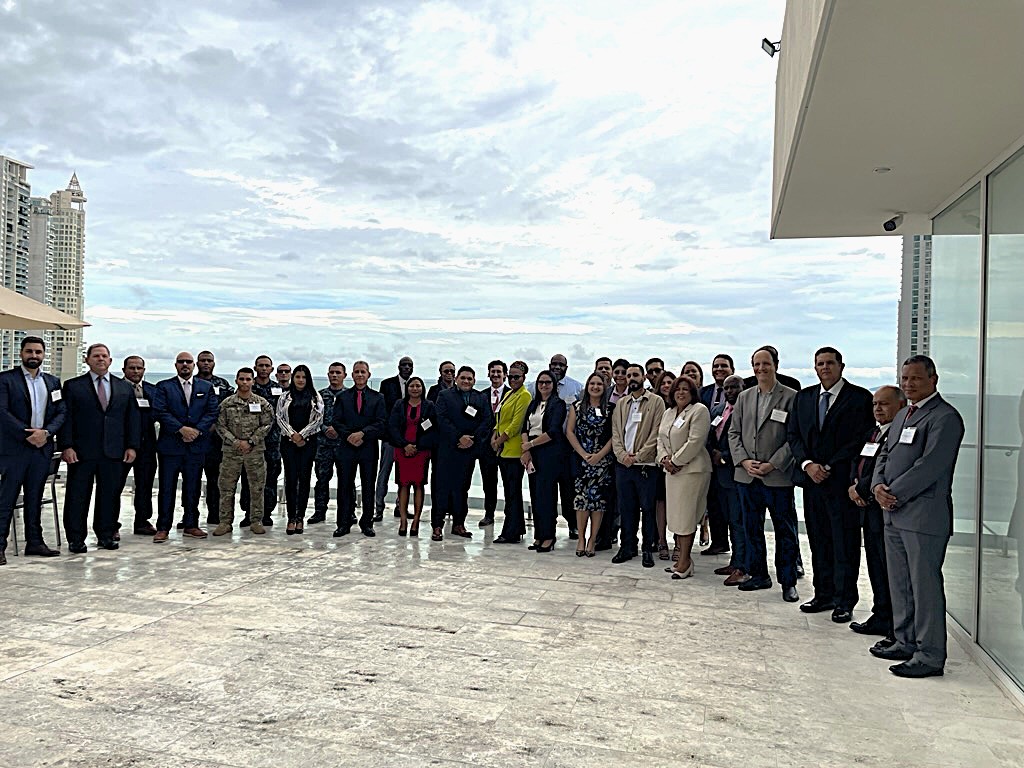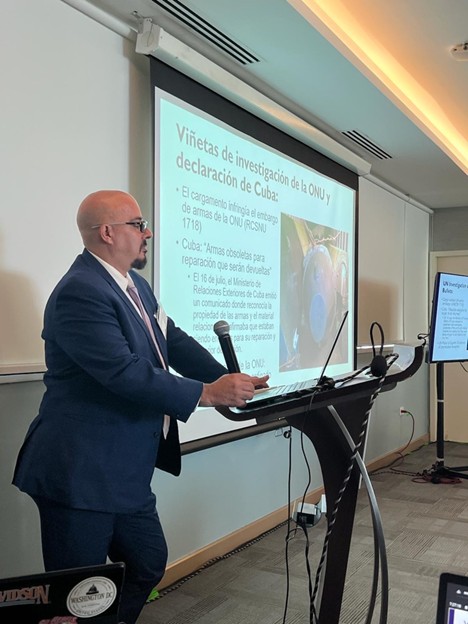CRDF Global Hosts Regional Maritime Security Workshop in Panama City

To build the capacity of Latin American institutions’ ability to enforce UN Security Council Resolution (UNSCR) sanctions on North Korea, CRDF Global convened customs officials, maritime authorities, merchant marines, and other authorities with a stake in maritime security in Panama City, Panama in June 2025. With the generous support of Global Affairs Canada’s (GAC) Weapons Threat Reduction Program (WTRP), CRDF Global partnered with maritime security experts from Muller Group International to train 30 participants on maritime sanctions evasion tactics, enforcement best practices and legal frameworks, dual use technologies, maritime supply chain due diligence, risk assessments, public-private collaboration in maritime security, and vehicle inspection due diligence.
The event was attended by high-level representatives from the Bahamas, Barbados, Belize, and Panama.
Limiting the Impact of Sanctioned Actors in Key Maritime Chokepoints
As the DPRK continues to develop its weapons of mass destruction program, it exploits flag registries, ports, and shipping hubs in Latin America. Maritime stakeholders in Latin America have continued to develop their capabilities to enforce these sanctions on North Korea and other proliferator states. Most notably, Panama has deflagged over 100 ships for violating maritime sanctions. However, maritime stakeholders are still working on enforcing sanctions through interagency cooperation, tracing ultimate ownership of shell companies, and other best practices for enforcement. CRDF Global is responding to these threats and vulnerabilities by providing region-specific maritime sanctions enforcement workshops and guidance to equip key stakeholders with the tools they need to effectively counter DPRK sanctions evasion.

Strengthening Sanctions Enforcement and Information Sharing Capabilities
To deliver the two-day workshop, CRDF Global collaborated with Muller Group International experts Jeff Muller and Pete Delacuesta to build a dynamic agenda that was relevant to the maritime enforcement audience in Latin America and the Caribbean.
Mr. Dieter Ploeger of the Embassy of Canada to Panama provided opening remarks in which he emphasized the importance of international cooperation in sanctions enforcement and framed the workshop as an opportunity for participants to make connections and think through challenging scenarios collectively.
Following opening remarks, expert trainers from Muller Group International engaged participants in detailed discussions on the purpose of maritime sanctions as well as proliferation threats and trends, common maritime sanctions evasion tactics employed by the DPRK, legal frameworks for sanctions enforcement, dual use technologies, and supply chain due diligence. The day ended with a detailed discussion on the interdiction of the Chong Chon Gang, a North Korean flagged ship that was transiting the Panama Canal with a hidden shipment of Russian MiG-21 fighter jets bound for the DPRK. The conversation was enriched by participants in the room who were present for the seizure of the ship.
The second day of the workshop began with a discussion of the layered enforcement strategy. The experts emphasized interagency and international cooperation, private sector engagement and supply chain monitoring to detect sanctions evasion activity. The experts discussed altered manifests and suspicious shipping paths as red flags to investigate. The workshop ended with a tabletop exercise involving a vessel displaying several red flags. Participants discussed how they would work within their agencies and collaborate with other agencies, private sector companies, or internationally when necessary to assess the indicators the ship was displaying.
Participants found the workshop to be a positive experience. The expertise from Muller Group International, the regionally relevant case studies, and interactive exercises helped participants think through how to more effectively collaborate to enforce sanctions on North Korea.



